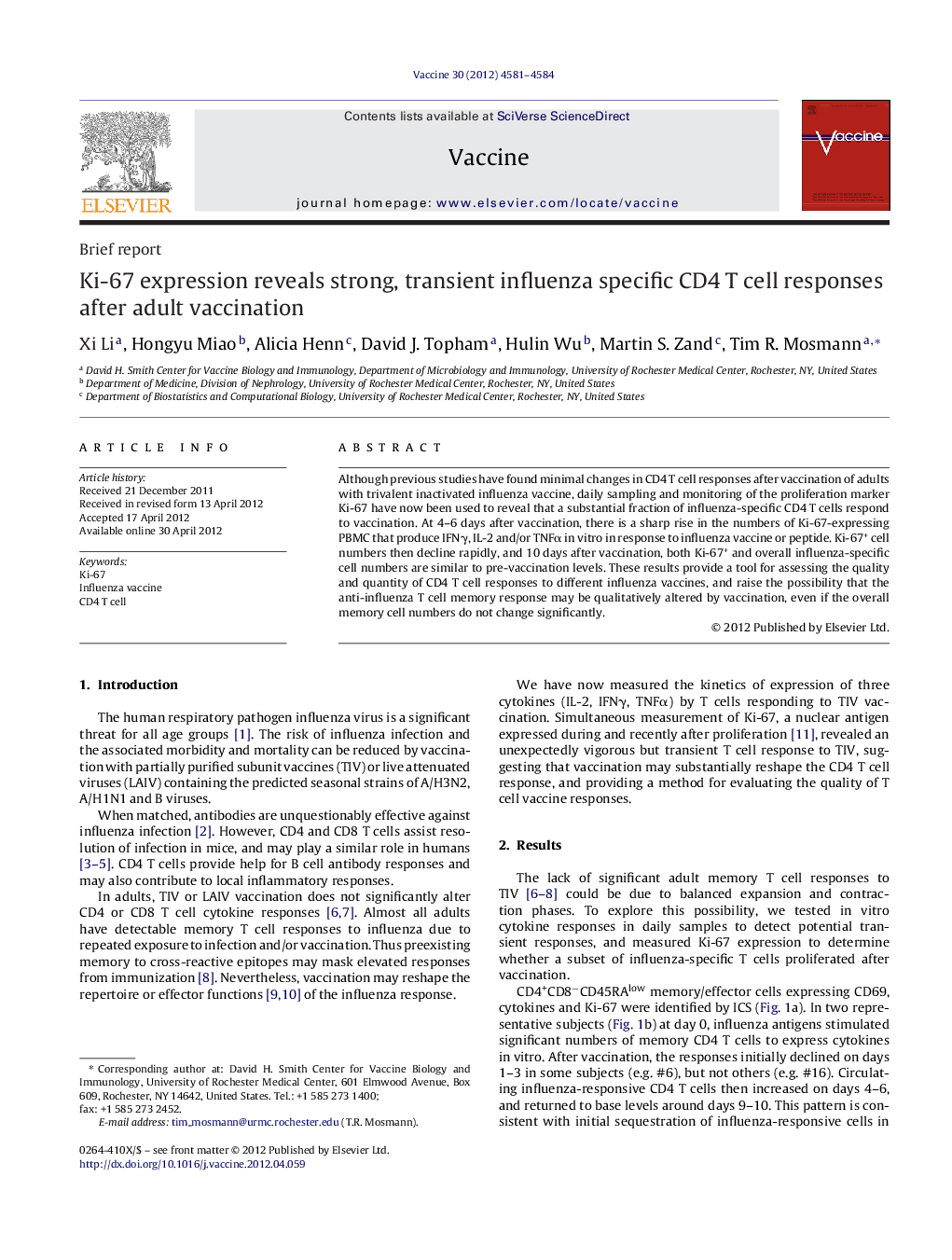| کد مقاله | کد نشریه | سال انتشار | مقاله انگلیسی | نسخه تمام متن |
|---|---|---|---|---|
| 2403315 | 1102897 | 2012 | 4 صفحه PDF | دانلود رایگان |

Although previous studies have found minimal changes in CD4 T cell responses after vaccination of adults with trivalent inactivated influenza vaccine, daily sampling and monitoring of the proliferation marker Ki-67 have now been used to reveal that a substantial fraction of influenza-specific CD4 T cells respond to vaccination. At 4–6 days after vaccination, there is a sharp rise in the numbers of Ki-67-expressing PBMC that produce IFNγ, IL-2 and/or TNFα in vitro in response to influenza vaccine or peptide. Ki-67+ cell numbers then decline rapidly, and 10 days after vaccination, both Ki-67+ and overall influenza-specific cell numbers are similar to pre-vaccination levels. These results provide a tool for assessing the quality and quantity of CD4 T cell responses to different influenza vaccines, and raise the possibility that the anti-influenza T cell memory response may be qualitatively altered by vaccination, even if the overall memory cell numbers do not change significantly.
► Measurement of Ki-67 reveals CD4 T cell responses to influenza vaccination.
► Influenza specific CD4 T cells respond transiently to vaccination.
► Influenza vaccination may reshape the T cell memory response.
► Ki-67 provides a tool to assess T cell responses to different vaccines.
Journal: Vaccine - Volume 30, Issue 31, 29 June 2012, Pages 4581–4584